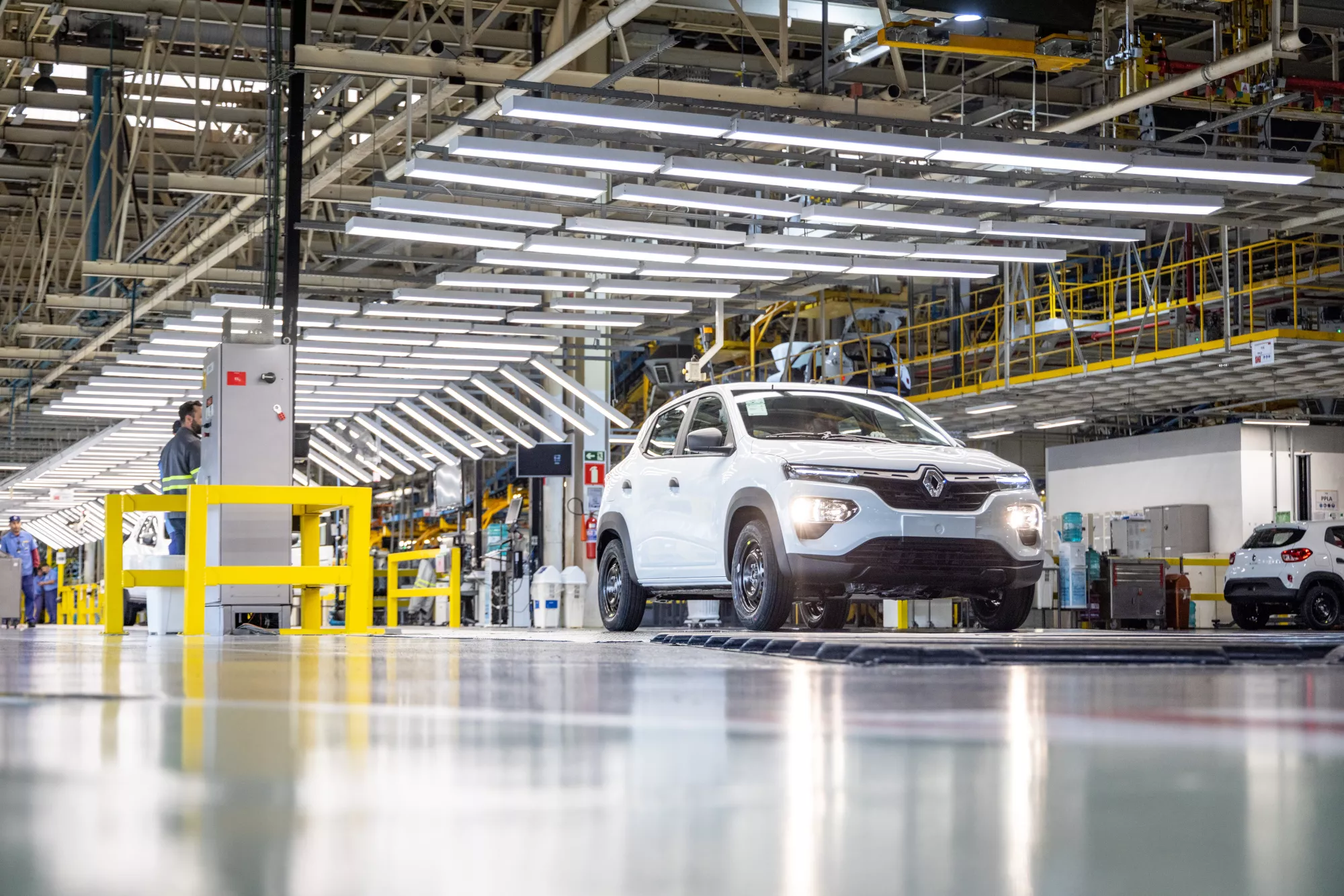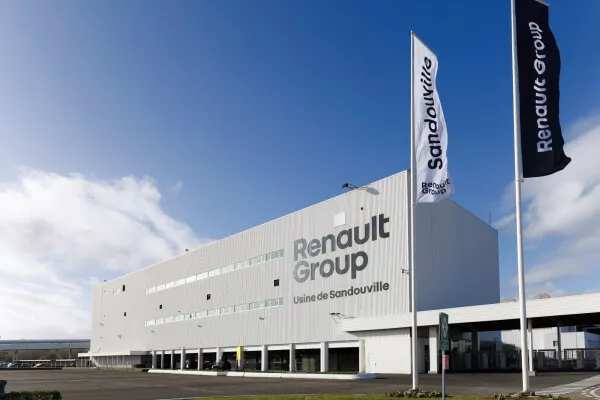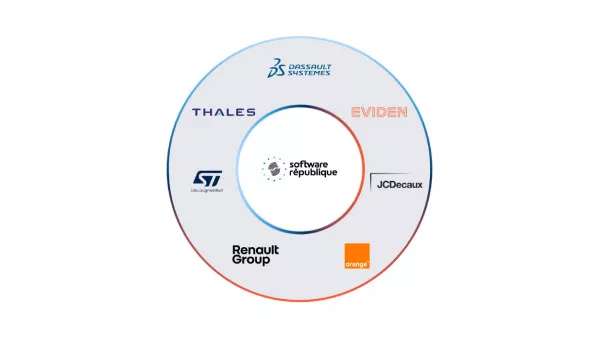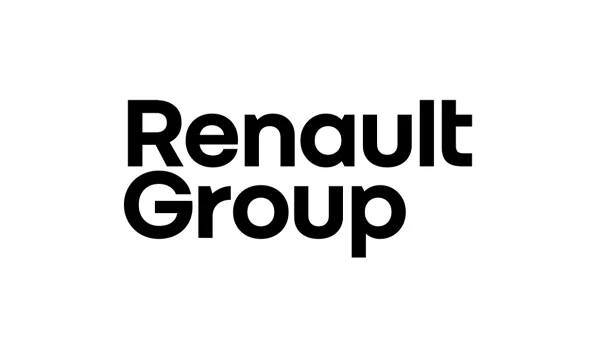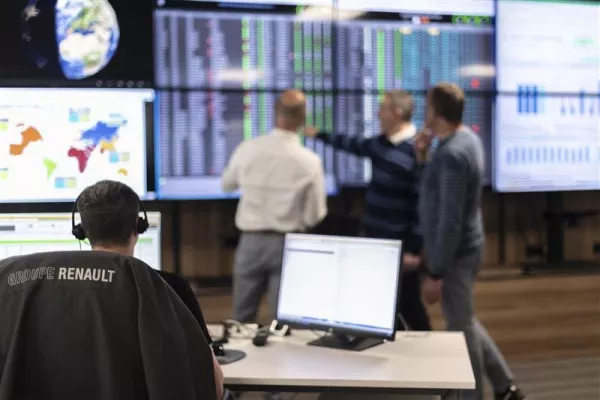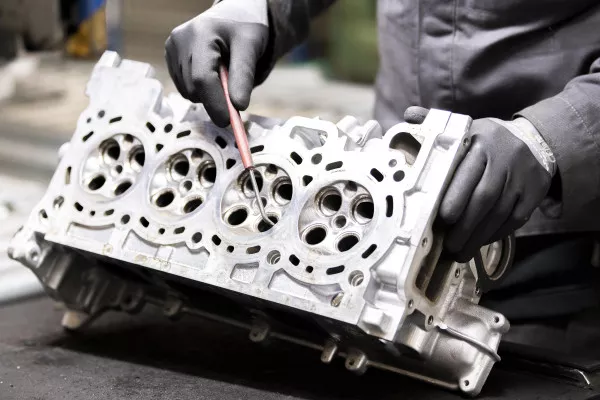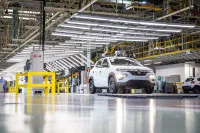Ayrton Senna complex in Brazil: a 25-year legacy and the start of a new era
On 12 March 1996, Renault Group chose Paraná as the site for its new plant, marking the start of a new chapter in automotive history for Brazil. On 4 December 1998, the Ayrton Senna industrial complex opened its doors in Curitiba, becoming one of Renault Group's main sites in South America. Over the past 25 years, the plant has achieved industrial success, building iconic vehicles and becoming part of the local socio-economic fabric. Today, the Ayrton Senna complex is beginning a new phase in its existence.
05 December 2023 07:30
The city of Curitiba in Brazil is steeped in a passion for cars. Extending over an area of 250 hectares, the Ayrton Senna complex is part of this rich automotive culture. The complex takes its name from the legendary Brazilian driver, a triple Formula 1 champion who tallied his first victories in a Lotus powered by a Renault V6 turbo engine. The industrial saga began in 1996, when Renault Group decided to build a plant here. Inaugurated in 1998, the site is celebrating 25 years of activity and looking ahead to a bright future.
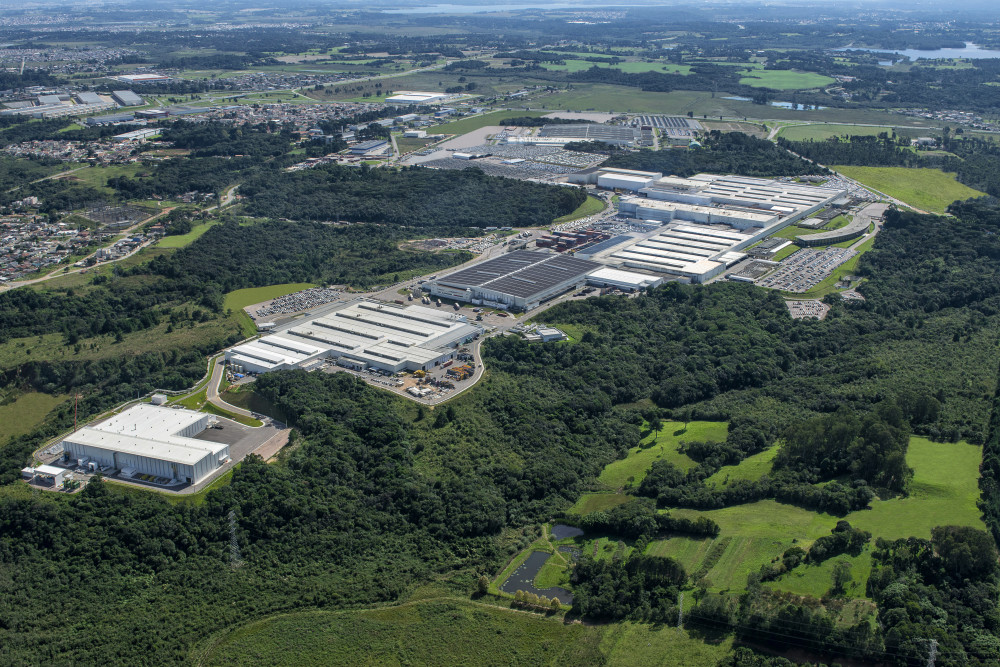
Output of 3.5 million vehicles and 5 million engines
Organised into two production units dedicated to passenger cars and light commercial vehicles, the complex employs a workforce of over 5,300. This year marks a turning point with the integration of a powertrain plant and foundry by HORSE, a Renault Group company dedicated to the development, production and supply of the next generation of low-emission hybrid and internal combustion powertrains. Over the past twenty-five years, the complex has produced over 3.5 million vehicles and 5 million engines, achieving success on both local and international markets.
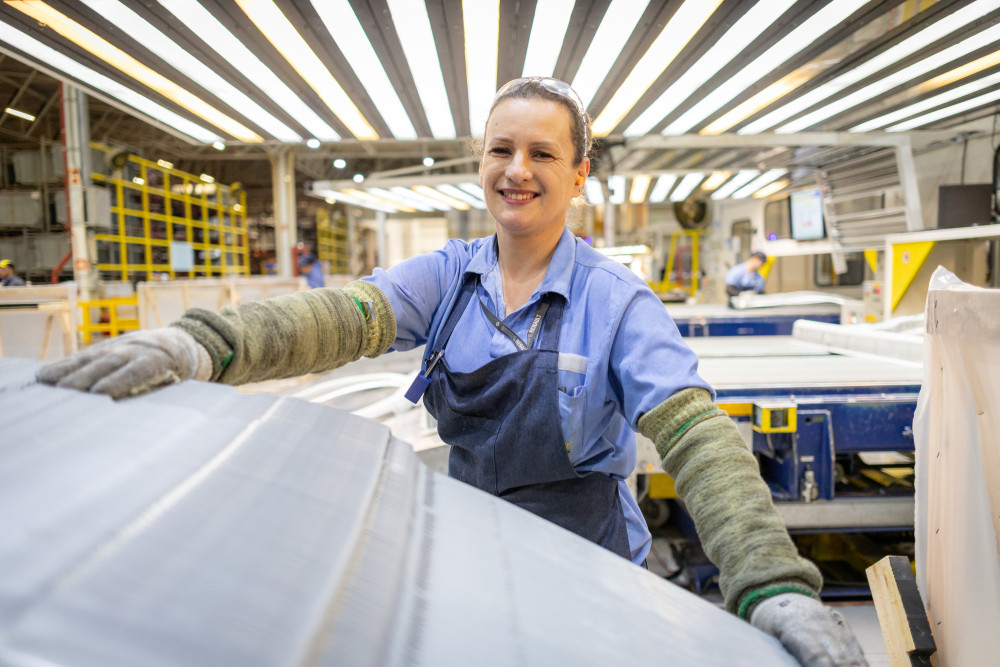
The complex Ayrton Senna employs a workforce of over 5,300
Iconic vehicles and innovations at every turn
The unique saga of the Ayrton Senna complex began with its founding. Over the years, it has seen the development of a full range of iconic Renault vehicles. In 1998, Renault Scenic revolutionised the Brazilian automotive industry with its avant-garde design.
Since then, every year has seen significant milestones, from the arrival of Clio in 1999, to the opening of the powertrain plant the same year and the beginning of the Mégane era in the new millennium. As the years flew by at a dizzying pace, the complex continued to write its history.
The 2000s saw an expansion into light commercial vehicles with the arrival of Master, confirming Brazil's strategic position in Renault's global growth. The launch of Renault Sandero and Logan in 2007 strengthened the brand's presence on the Brazilian market. The following years saw a number of significant events, culminating in 2011 with the production of the one millionth vehicle, the arrival of Renault Duster and, in 2015, the launch of Oroch, the first Renault pick-up in Brazil. The range was expanded in 2017 with Captur, followed by Kwid, the urban micro-SUV that won 29 awards from the Brazilian trade press. In 2019, several models made their market debut, including Sandero, Logan, Sandero R.S. and Stepway 2020, as well as Kwid Outsider. In 2022, the entire range was renewed, with new versions of Kwid, Master, Oroch and Duster.
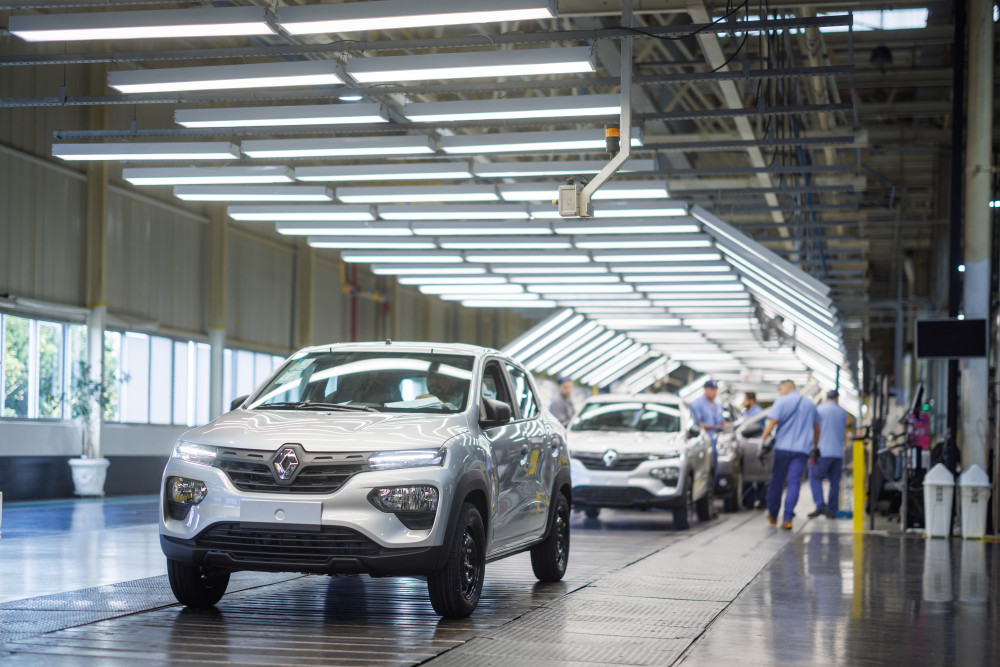
In 2022, the entire range was renewed, with new versions of Kwid, Master, Oroch and Duster
2023, the start of a new era
A new era began in 2023 with the announcement of Renault International Game Plan 2027, the new Group strategy. As part of this plan, the Ayrton Senna complex will build two new vehicles, Renault Kardian and a new C-segment SUV. To complete the Group’s industrial base and address the needs of the local market, the engine for the new SUV will be produced on site by HORSE.
Coinciding with the presentation of Renault International Game Plan 2027, Renault Group also opened a new design centre, the Renault Design Center LatAm, inside the Ayrton Senna industrial complex. This centre will develop future concepts and models for the Brazilian and Latin American markets.
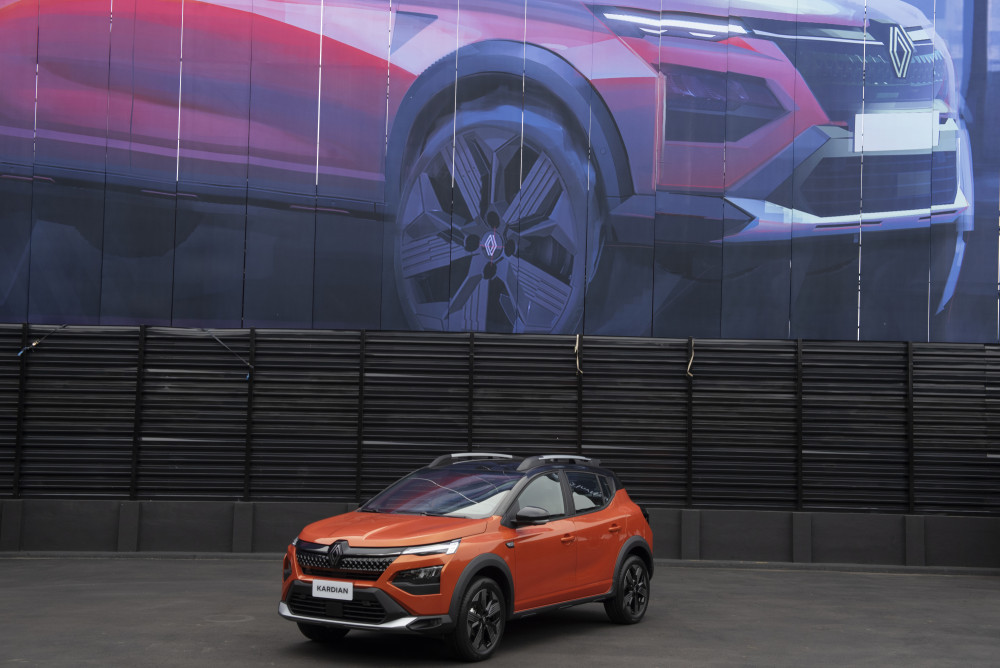
Renault Kardian was designed in the Renault Design Center LatAm
A technological revolution at the heart of production
The Ayrton Senna site has reinvented itself constantly over the years, addressing the challenges of digitalization, low carbon and competitive performance. This far-reaching transformation began in 2016 with a series of initiatives relating to Industry 4.0.
First, the complex deployed a Wi-Fi infrastructure covering an area of 6,000 m2, for full connectivity across the site. The complex has also gone paperless by distributing tablets to all manufacturing staff, generating total savings of 2.5 million sheets, the equivalent of 21 tonnes of CO2.
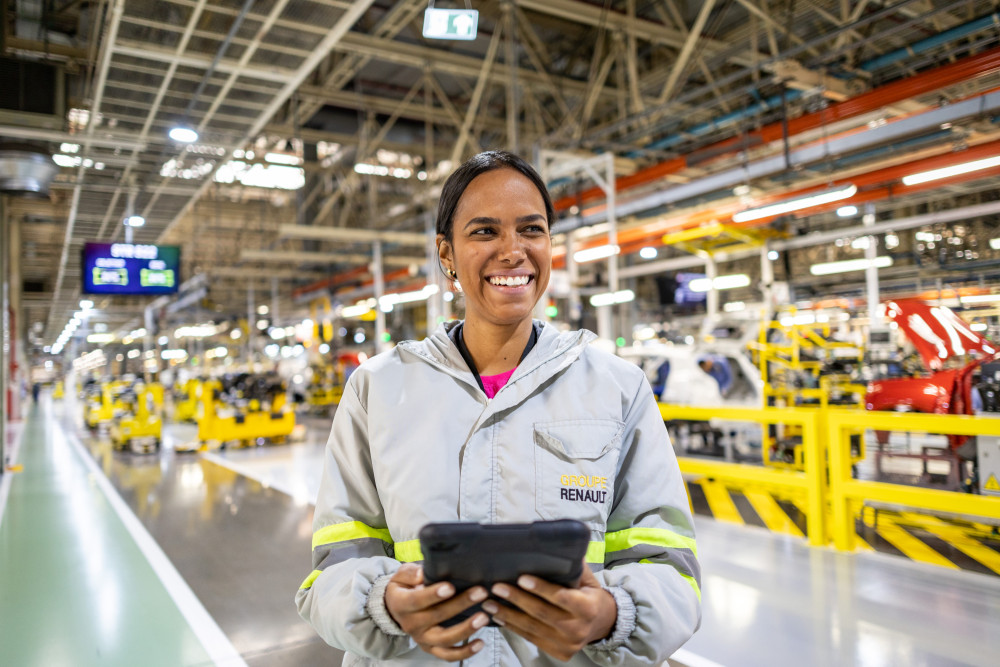
The complex has gone paperless by distributing tablets to all manufacturing staff
Another key milestone in the digital transformation of the production plants is the launch of the Industrial Metaverse. Today, the Ayrton Senna complex has entered a new era, with over 700 robots controlled by this cutting-edge technology. The introduction of digital twinning technology (modelling of physical resources) on assembly lines has revolutionised real-time data analysis, boosting manufacturing performance and improving quality.
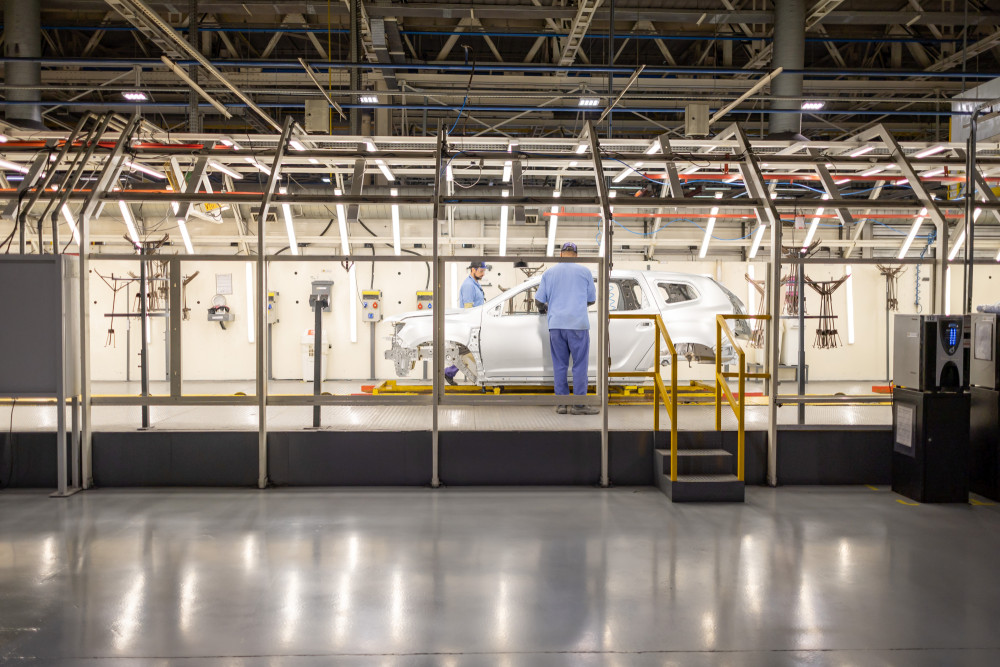
Every day, an impressive total of 26,000 images are submitted to the AI process, feeding into a continuous stream of data that is used to verify powertrain quality and safety.
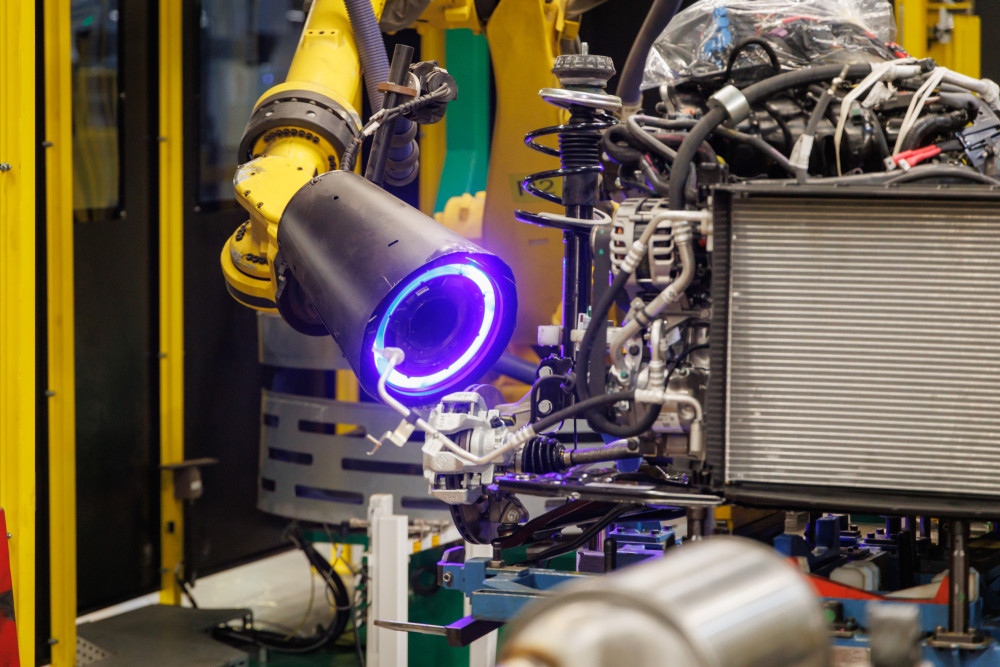
A 3D printing centre has also been set up, producing over 10,000 parts a year. These parts are not only used in the manufacturing process, but also to carry out a range of tests before the start of production.
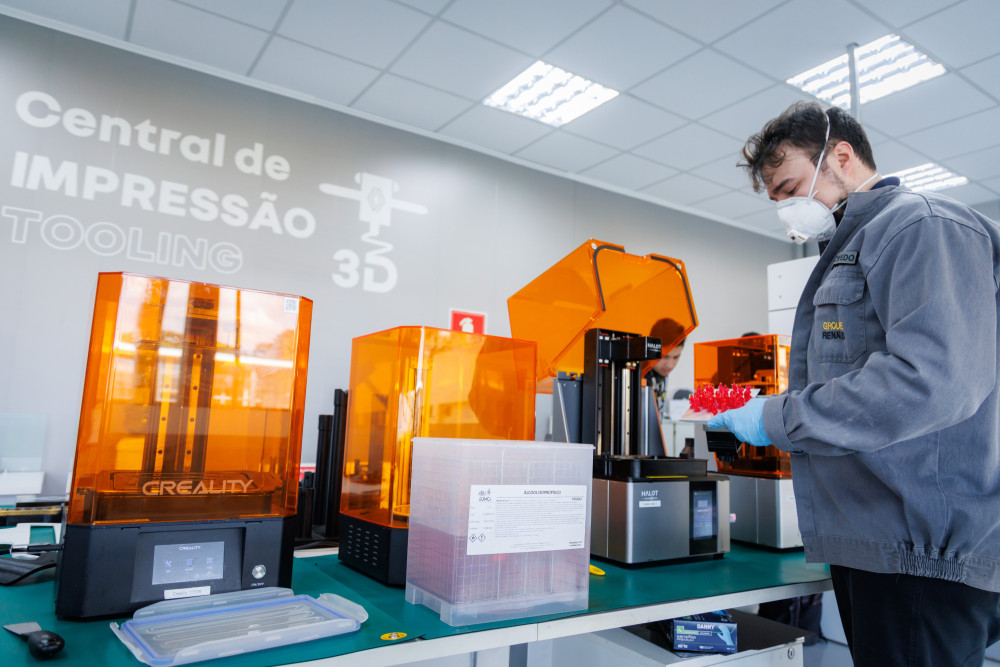
To increase agility and performance, no fewer than 346 AGVs (automated guided vehicles) travel up and down the production lines every day.
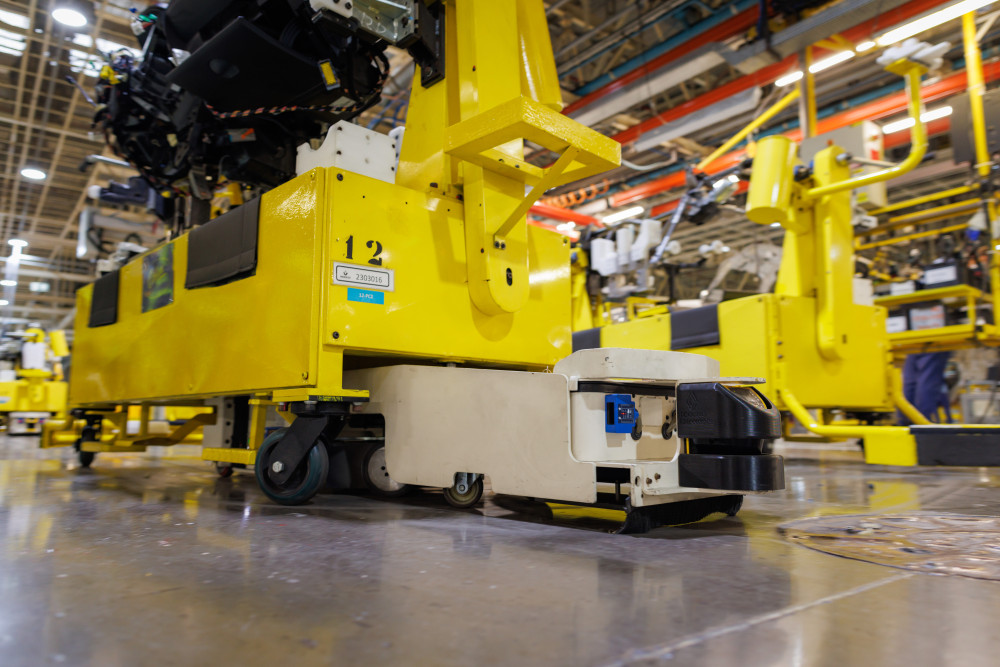
In 2020, the Ayrton Senna complex was recognised as an Industry 4.0 site by the prestigious World Economic Forum foundation, once again highlighting Renault’s ongoing commitment to moving its plants towards more connected and more sustainable production.
Towards a low-carbon future
Building on the active environmental commitment of Renault Group, the Curitiba plants are at the forefront of the low-carbon transition in the Brazilian automotive sector. Forty percent of the total surface area of the site is covered by forests that were left untouched during the construction of the site, demonstrating its commitment to protecting biodiversity.
Also as part of this approach, a number of major initiatives have been taken to reduce pollutants, such as those found in paint. In 1998, Renault Group became the first vehicle manufacturer in Brazil to adopt water-soluble paint.
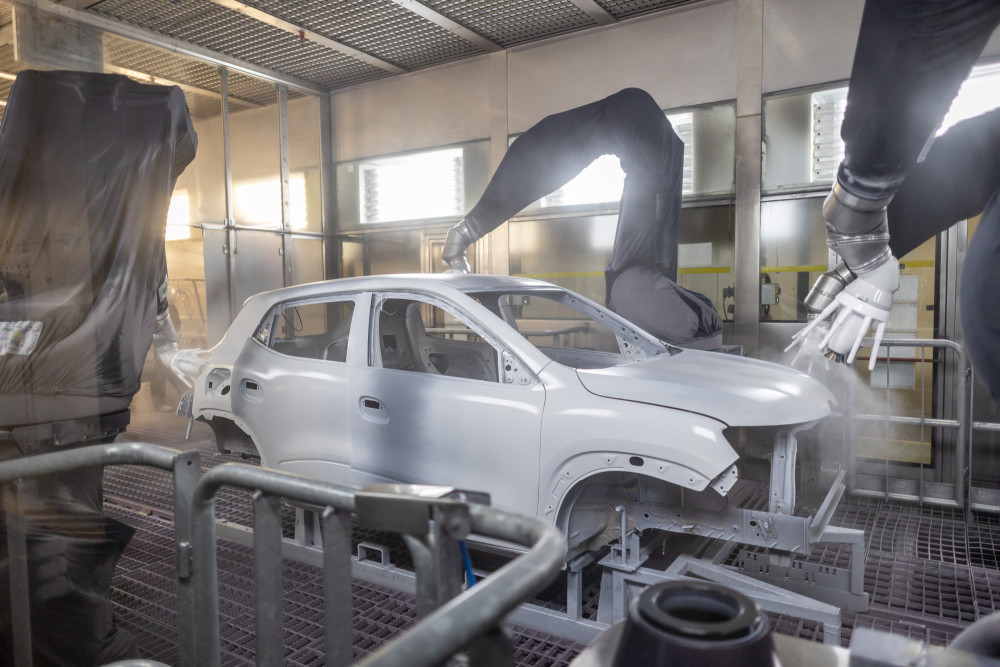
The zero waste policy introduced in 2016 was a major milestone. Since then, the plants have managed all their waste. In 2022, for example, the site processed over 47,000 tonnes of waste.
Renault Group's ambitions in Brazil do not stop there. By the end of 2023, 100% of the electricity used to power the plants will come from a clean photovoltaic source, up from 85% today. In July of this year, the site entered a new era, harnessing the power of a 50 MW solar farm in the Castilho photovoltaic park.
The story of the Ayrton Senna complex is not just about industrial success. It is also a moving narrative of innovation, community engagement and continuous growth. It is a living, evolving story reflecting the vision of Renault Group and its profound impact on Brazil's socio-economic fabric.
Also, in 2023, the complex opened a museum to celebrate and look back at 25 years of activity.
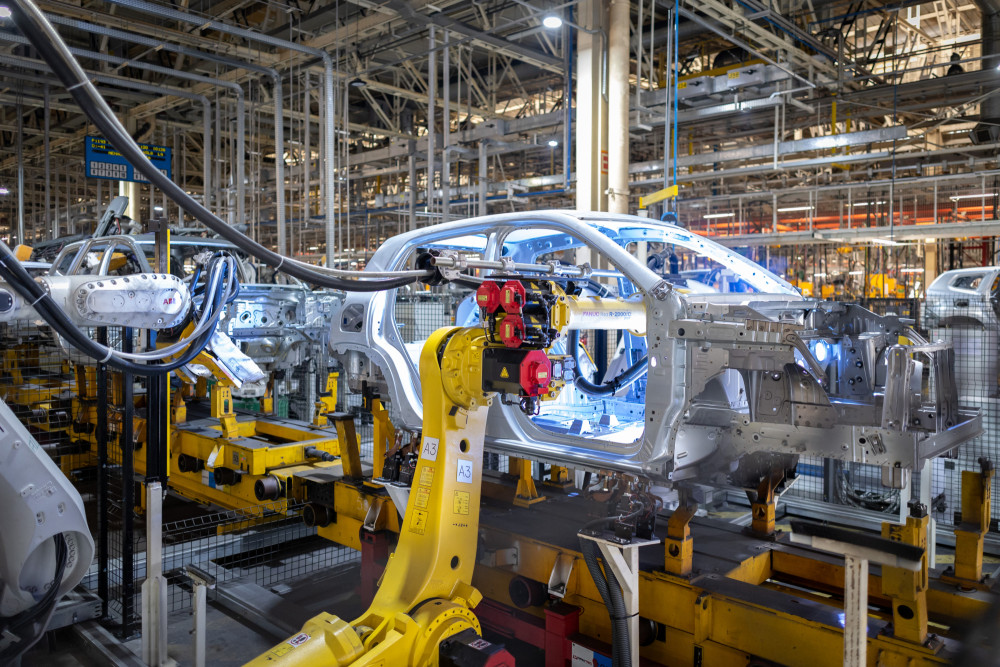
Community engagement spanning 25 yearsAlongside the continuous expansion of its industrial activities, the Ayrton Senna complex has been at the forefront of strong social initiatives over the past decade. The Renault Institute was founded in 2010 to promote inclusion and road safety. It has already provided support for over 860,000 people. The Women@Renault initiative was launched the same year to promote gender equality and increase the representation of women in industry. The ambition of Renault Group in Brazil is to achieve gender parity at all levels of the company. Many initiatives have been taken to improve the everyday lives of women in industrial plants, such as a dedicated space for breastfeeding. The Renault Institute has provided support for a social initiative by the Borda Viva association, promoting social entrepreneurship for women. Using offcuts of automotive fabric to make handbags and accessories is a practical example of the circular economy in action. The company received Great Place to Work certification in 2021 and 2023, in recognition of its exemplary employee experience. A pioneer in hybrid working from 2021, Renault Group in Brazil is at the forefront of flexible working practices, creating an adaptable workplace where employees can thrive. |
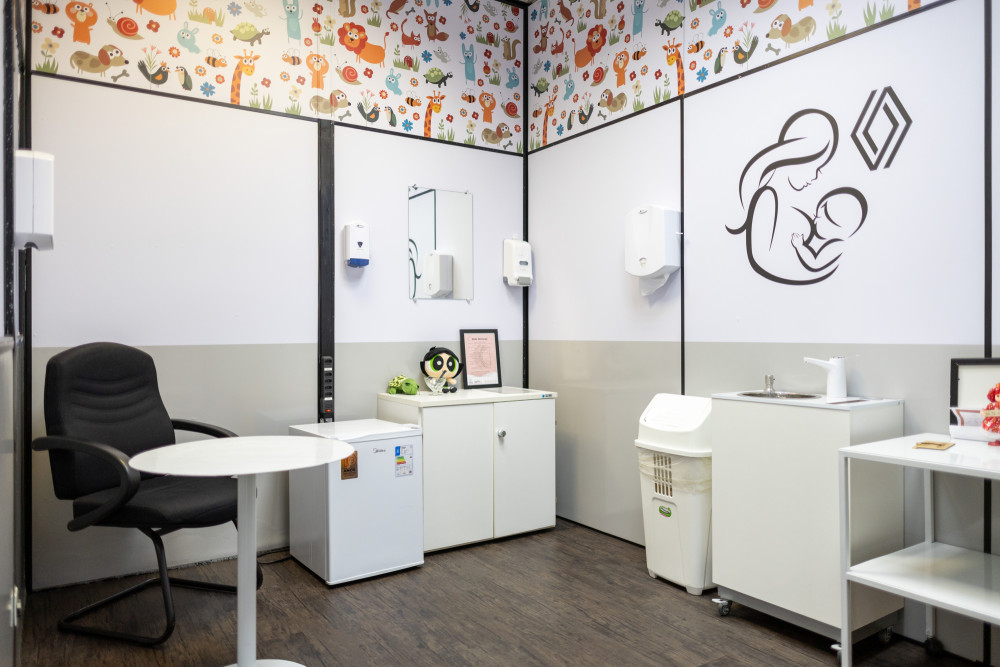
A dedicated space for breastfeeding has been opened in Ayrton Senna complex
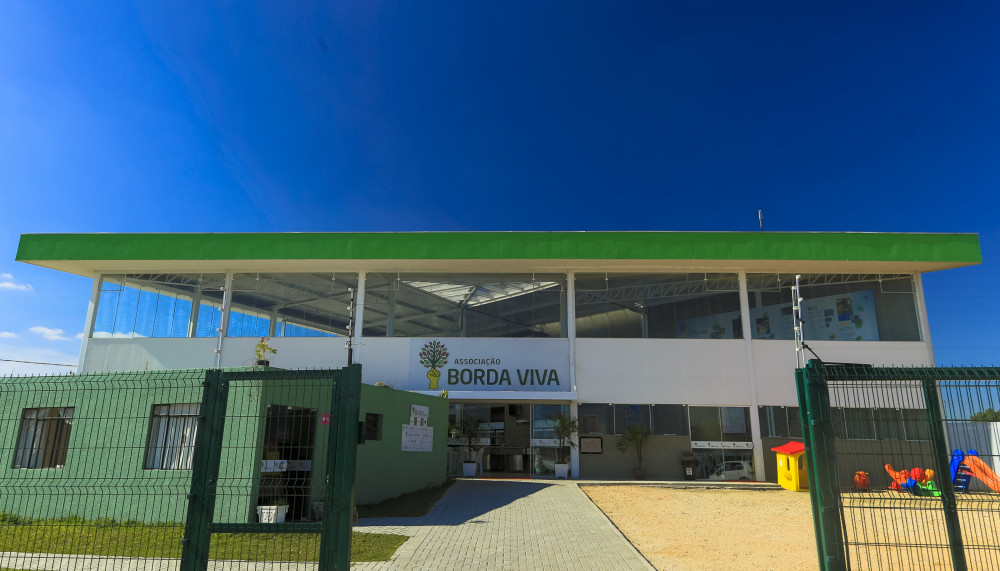
The Renault Institute has provided support for a social initiative by the Borda Viva association, promoting social entrepreneurship for women
Renault Group is at the forefront of a mobility that is reinventing itself. Strengthened by its alliance with Nissan and Mitsubishi Motors, and its unique expertise in electrification, Renault Group comprises 4 complementary brands - Renault, Dacia, Alpine and Mobilize - offering sustainable and innovative mobility solutions to its customers. Established in more than 130 countries, the Group has sold 2.1 million vehicles in 2022. It employs nearly 106,000 people who embody its Purpose every day, so that mobility brings people closer.
Ready to pursue challenges both on the road and in competition, Renault Group is committed to an ambitious transformation that will generate value. This is centred on the development of new technologies and services, and a new range of even more competitive, balanced, and electrified vehicles. In line with environmental challenges, the Group’s ambition is to achieve carbon neutrality in Europe by 2040.
More information www.media.renaultgroup.com
Media library (24)
Renault Group is at the forefront of a mobility that is reinventing itself. Strengthened by its alliance with Nissan and Mitsubishi Motors, and its unique expertise in electrification, Renault Group comprises 4 complementary brands - Renault, Dacia, Alpine and Mobilize - offering sustainable and innovative mobility solutions to its customers. Established in more than 130 countries, the Group has sold 2.1 million vehicles in 2022. It employs nearly 106,000 people who embody its Purpose every day, so that mobility brings people closer.
Ready to pursue challenges both on the road and in competition, Renault Group is committed to an ambitious transformation that will generate value. This is centred on the development of new technologies and services, and a new range of even more competitive, balanced, and electrified vehicles. In line with environmental challenges, the Group’s ambition is to achieve carbon neutrality in Europe by 2040.
More information www.media.renaultgroup.com
Related topics
